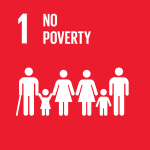UNDP-supported project benefits 80,000 coastal residents in Sinoe County to build climate resilient livelihoods, and protect communities from sea level rise and other life-threatening climate change impacts
3 June 2020 – The Global Environment Facility (GEF) approved today US$8.9 million in new grant funding from the Least Developed Countries Fund (LDCF) for a coastal resilience project that will benefit 80,000 people in Liberia and rehabilitate 20,000 hectares of degraded coastal habitats.
Implemented by Liberia’s Environmental Protection Agency (EPA) and supported by the United Nations Development Programme (UNDP) the seven-year project will protect vulnerable coastal communities in Sinoe County from rising seas, degraded coastal habitats and other life-threatening climate change-related risks that threaten to undermine progress toward the Sustainable Development Goals (SDGs) and targets outlined in the Paris Agreement.
The project brings together co-financing and support from a number of sources. USAID will provide US$28 million in co-finance, the World Bank will provide US$15 million, and Conservation International will provide US$500,000 of in-kind contributions through their on-going work in Liberia and West Africa. It also builds on earlier and ongoing projects funded by the GEF and the Green Climate Fund.
“Climate change is undermining our goals to build peace and prosperity for our people. Taken together with other actions, this innovative project protects vulnerable coastal residents from sea-level rise and supports our global vision to end hunger and poverty by 2030,” said Hon. Randall Dobayou, Executive Director a.i, Environmental Protection Agency.
An estimated 64 percent of Liberians live below the poverty line, with 1.3 million living in extreme poverty. Food insecurity affects four out of 10 people, and chronic malnutrition is high. The Ebola Virus and COVID-19 pandemic have put even more Liberians at risk.
The economy, though recovering, is still unable to generate sufficient employment, especially for young people. More than half of Liberia’s 4 million people live within 40 miles of the coast, putting extensive pressure on coastal ecosystems for food, land, mineral extraction, and other resources. This has resulted in habitat loss and degradation.
“The project works toward transformational change by moving away from a 'business-as-usual' model to an integrated approach that combines nature-based interventions, hard infrastructure, gender-responsive approaches, capacity, policy, engagement with the financial services sector, knowledge and information and observational management systems,” said UNDP Resident Representative Pa Lamin Beyai.
In supporting climate resilient livelihoods, gender equality, decent work and economic growth, and responsible consumption and production as outlined in the SDGs, the project supports business development and training programmes for 70,000 beneficiaries, with targeted approaches for women and youth. It also targets 30,000 beneficiaries who will benefit from integrated farming systems, fisheries and compressed stabilized 'earth blocks' and their value chains.
The project enhances coastal resilience to storms, coastal erosion and flooding risks while supporting a range of ecosystem service benefits that improve livelihood security and overall climate resilience. These supports will benefit other coastal counties around the country in sea and river defence risk management as well as support for climate adaptation livelihood opportunities.
Notes to editors
About UNDP
UNDP partners with people at all levels of society to help build nations that can withstand crisis, and drive and sustain the kind of growth that improves the quality of life for everyone. On the ground in nearly 170 countries and territories, we offer global perspective and local insight to help empower lives and build resilient nations. www.undp.org.
About The GEF
The Global Environment Facility (GEF) was established on the eve of the 1992 Rio Earth Summit to help tackle our planet’s most pressing environmental problems. Since then, the GEF has provided close to $20.5 billion in grants and mobilized an additional $112 billion in co-financing for more than 4,800 projects in 170 countries. Through its Small Grants Programme, the GEF has provided support to nearly 24,000 civil society and community initiatives in 133 countries.


